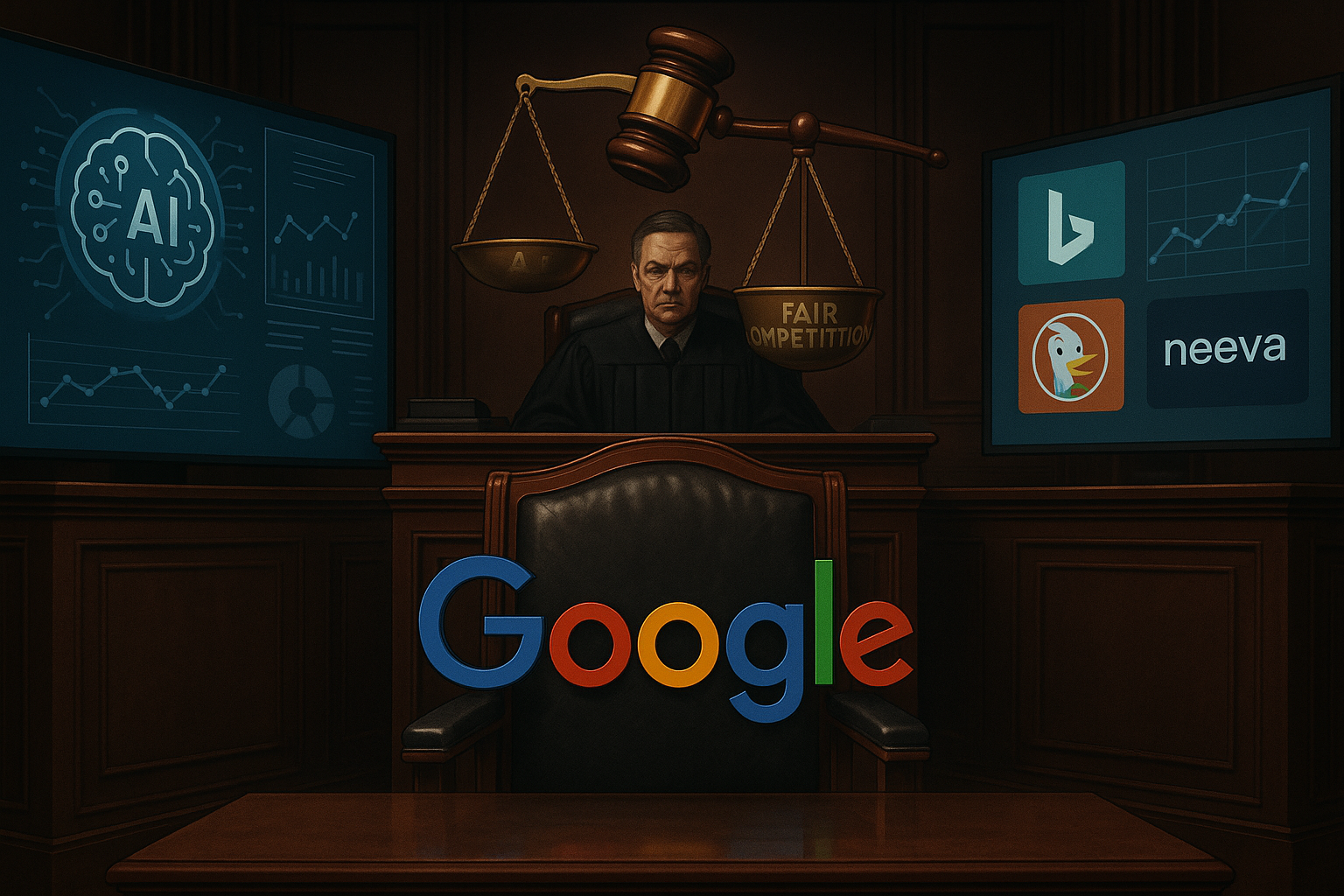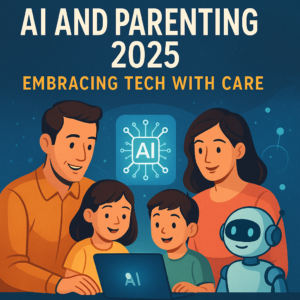Google Antitrust Case 2025: Will AI Cement Google’s Monopoly or Reshape Search?
Introduction
What happens when the world’s most dominant search engine meets the courtroom in a high-stakes antitrust trial? The Google Antitrust Case 2025 has begun, and it could transform how we experience the internet.
The U.S. Department of Justice (DOJ) has taken a bold step, alleging that Google is leveraging its near-total control over online search—and the growing power of artificial intelligence (AI)—to unfairly crush competition. With Google controlling nearly 90% of the global search market, the government argues that the tech giant’s dominance is no longer organic, but systematically enforced through exclusive deals and AI-fueled innovation.
As an expert following antitrust policy and emerging AI trends, this article will break down the current legal case, why it matters, how AI plays a central role, and what this trial could mean for digital freedom, tech regulation, and the future of online search.
What is the Google Antitrust Case 2025?
The Google Antitrust Case 2025 is a landmark legal proceeding brought by the U.S. Department of Justice, accusing Google of illegally maintaining its monopoly in online search. At the core of the DOJ’s claim is that Google has used exclusive contracts with device manufacturers, browser developers, and telecom providers to remain the default search engine—thereby blocking competitors from gaining market share.
Why It Matters
- Google holds approximately 90% of the online search market globally.
- Search is now deeply entwined with AI, user data, and algorithmic personalization.
- If Google integrates AI into its ecosystem unchallenged, its control could become even more unshakable.
- The outcome could set global precedents for tech regulation in the AI age.
DOJ Statement: “Google is not winning through competition—it is locking the door to rivals before they can compete.”
Benefits/Importance of the Google Antitrust Case 2025
- Consumer Protection: Ensures users get real alternatives in search engines.
- Market Competition: Opens doors for smaller, innovative tech companies.
- AI Oversight: Promotes transparency in AI-powered recommendation engines.
- Policy Reform: Sparks global conversations on regulating big tech.
Case in point: If default search deals were removed, privacy-focused engines like DuckDuckGo or Neeva could gain meaningful traction.
How to Understand the Key Components of the Google Antitrust Case
Step 1: Review the DOJ’s Main Arguments
- Google uses exclusivity contracts to be the default search engine.
- These contracts block out competitors by default rather than merit.
Step 2: Follow the Role of AI in the Trial
- DOJ fears that AI personalization, trained on Google’s massive data, can fortify its monopoly.
- Prosecutors warn that AI could make Google’s position “virtually unchallengeable.”
Step 3: Track Google’s Defense
- Google argues that users voluntarily choose its search engine.
- The company cites competitors like Amazon, TikTok, and ChatGPT as emerging search disruptors.
Step 4: Watch for Implications
- If found guilty, Google may face structural changes to its business.
- There could be limits placed on AI usage in search dominance.
Best Practices & Expert Tips for Understanding Antitrust in the Age of AI
- Prioritize diverse sources—read from court documents, news outlets, and think tanks.
- Track developments in AI legislation like the EU AI Act or U.S. digital market regulations.
- Monitor emerging competitors to understand how innovation is affected.
- Follow AI ethics experts for critical insights on data use and power concentration.
Common Mistakes to Avoid with Understanding the Google Antitrust Case
- Assuming AI itself is the issue—the real concern is how it’s used to reinforce monopolies.
- Oversimplifying the debate as just “Google is better.”
- Ignoring the implications for smaller competitors and global regulation.
- Underestimating how default settings influence consumer behavior.
Comparisons: How This Trial Compares to Past Tech Antitrust Cases
To understand the significance of the Google Antitrust Case 2025, it’s helpful to compare it to the landmark Microsoft antitrust case of 1998. In that earlier case, the U.S. government sued Microsoft for bundling its Internet Explorer browser with its Windows operating system, which was seen as an unfair advantage that stifled competing browsers like Netscape.
Fast forward to 2025, and the core issue is again about unfair dominance—but this time, it’s about Google using exclusivity deals with device and browser manufacturers to ensure it remains the default search engine. Unlike Microsoft’s focus on software integration, Google’s advantage stems from its control over user data, algorithms, and AI-powered personalization.
The technological stakes are also much higher. While the Microsoft case centered on software, Google’s case involves AI systems trained on massive datasets, making its potential monopoly both more complex and more difficult to dismantle.
If the DOJ succeeds, the remedy could be more than just fines—it might require breaking apart divisions, limiting Google’s default agreements, or even imposing restrictions on how AI can be embedded into core services. The implications are global, with regulators from the EU, Canada, and Australia watching closely.
The Google Antitrust Case 2025 is more than a courtroom drama—it’s a turning point for how AI, consumer choice, and digital power intersect. The outcome may reshape the internet’s future, redefine competition, and influence tech regulation worldwide.
Whether Google is held accountable or not, the conversation around AI-powered monopolies and data ethics is now mainstream. As users and citizens, staying informed and asking tough questions is crucial in this era of intelligent automation.





